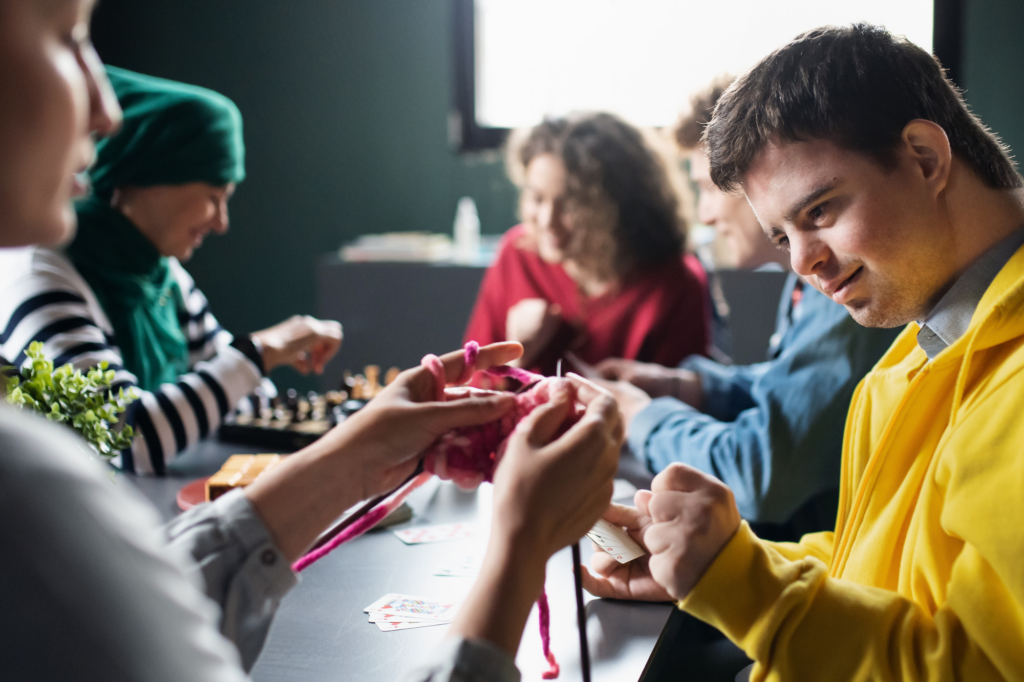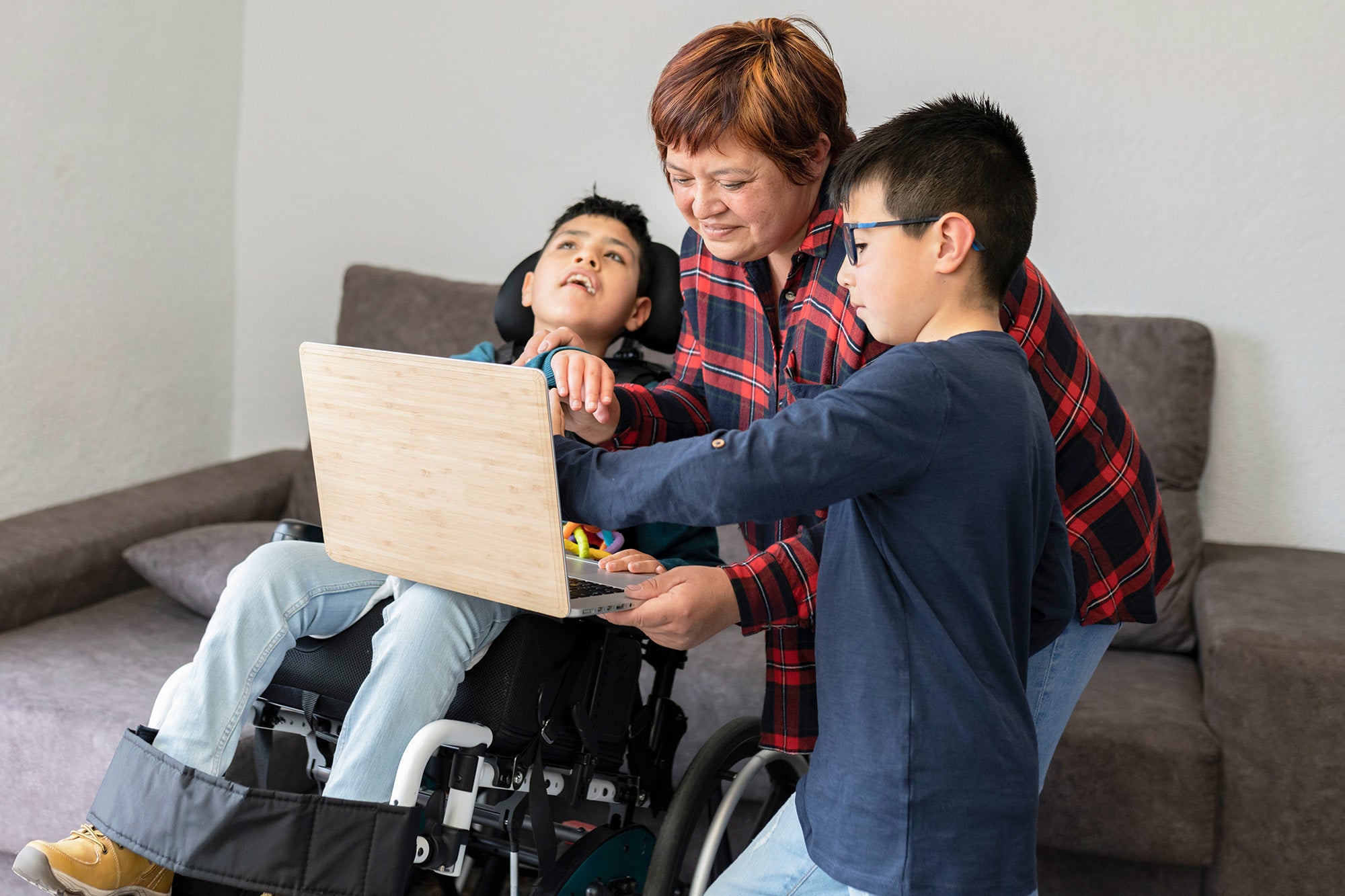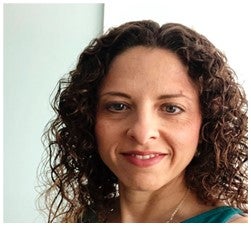
Advancing self-determination and promoting equity among the diversity of people with disabilities.
The Center advances self-determination among the diversity of people with disabilities and their families, throughout the life course, promoting equity to ensure their full participation in all aspects of community life.
Thrive Center is a proud home for the, the Georgetown University Center for Excellence in Developmental Disabilities (GUCEDD), which for over half a century has worked in collaboration with people with disabilities, their family members, and community partners to advance the broad spectrum of interests and needs of people with developmental and other disabilities across the life course. The GUCEDD champions the rights of all people with disabilities to receive an education, access healthcare and mental health care, seek and maintain meaningful employment, build social relationships, and live in homes and communities of their choice.
Guided by its Advisory Council (GAC), the GUCEDD conducts:
● Interdisciplinary pre-service training
● Continuing education and community training
● Community services and technical assistance
● Research and evaluation
● Information dissemination
Current Research
Troxel, M., Kraper, C., Verbalis, A., Safer-Lichtenstein, J., Seese, S., Ratto, A., … & Anthony, L. G. (2024). Reaching “the other half”: Teacher referral increases inclusivity in intervention research for neurodivergent school-age children. Journal of Clinical Child & Adolescent Psychology, 1-14.

Key Activities
Technical Assistance
- Transition Supports for Parents with Intellectual and Developmental Disabilities Partnership
The Transition Implementation Partnership (TIP) project was created to address the interests and needs of parents with intellectual and developmental disabilities (IDD) as their children transition across different stages of development, from birth through adulthood. Within the TIP project, a series of Policy & Practice Guides were created to help organizations and agencies in both the public and private sectors create or improve policies and practices to better support parents with IDD.
Learn more about the Transition Implementation Partnership - Advancing Cultural and Linguistic Competence, Diversity, Equity, and Inclusion: New York Office of People With Developmental Disabilities-National Center for Cultural Competence (OPWDD-NCCC) Partnership for Systems Change
The goal of the OPWDD-NCCC partnership is to advance policies and practices of cultural and linguistic competence, diversity, equity, and inclusion in all components of the developmental disability system of New York State.
Learn more about OPWDD-NCCC
Workforce Development
Georgetown Leadership Education in Neurodevelopmental Disabilities (GULEND)
GULEND is an interdisciplinary training program focused on strengthening the local services and supports for people with disabilities and their families across the lifespan. GULEND provides training to clinicians and related service providers at any level of their career, persons with lived experience of disability,family members, advocates, and other personnel. GULEND offers a Mentorship for Equity component, designed to support trainees to integrate cultural and linguistic competence in their career and life goals.
Georgetown Infant, Early Childhood, Family Mental Health (IECFMH) Leadership
The IECFMH Certificate program is a specialized training designed to prepare parents, caregivers, and professionals as Community Mental Health Workers (CMHWs). This program aims to diversify the public and mental health workforce by equipping CMHWs—particularly those from equity-deserving communities—with the skills to support families impacted by social determinants of health and the lived experiences of disability to access appropriate health and mental health care in communities affected by structural inequities. Upon completion, participants earn a certificate that not only enhances their professional qualifications but also opens pathways for career advancement in medical, early childhood, and/or community-based settings.
Georgetown University Certificate in Early Intervention (GUCEI)
This online certificate program equips professionals with the skills and knowledge to build and deliver services for infants, toddlers, and young children with disabilities or delays in development. Through advanced, evidence-based training, participants learn to apply a “system of care” approach to service delivery. The GUCEI program emphasizes culturally competent, family-centered practices. Graduates are prepared to effectively support young children and their families, fostering positive developmental outcomes.
Advancing Cultural and Linguistic Competence, Diversity, Equity, and Inclusion: New York Office of People With Developmental Disabilities-National Center for Cultural Competence (OPWDD-NCCC) Partnership for Systems Change
A major aspect of this project is to conduct professional development and inservice training that increases staff capacity to develop and implement culturally and linguistically competent policies, procedures, and practices to support the diverse population of persons with intellectual and developmental disabilities and their families that reside in NewYork State.
Community and Clinical Services
Developmental Evaluation Clinic: The DEC provides developmental evaluation services to babies who were born prematurely. The babies are followed at regular intervals up until 2 years of age. Each baby is evaluated by a team of specialists including a developmental pediatrician, clinical psychologist, and pediatric physical therapist. Verbal feedback, a summary report, and recommendations are provided at the time of the assessment. Referral to community resources is provided to families if it is determined that the child would benefit from early intervention services.
Research and Evaluation
Re-hospitalization Rates for People with Intellectual and Developmental Disabilities in the District of Columbia. This study will provide more information on how these rates compare to adults without diagnosed IDD; factors that contribute to hospitalizations; and the percentage of observed re-hospitalizations that are preventable.
Health Screening for Adults with Intellectual Disabilities. Overall findings showed that with clear guidelines and a fairly simple tracking process, it is possible to assure that individuals with ID in public care receive most recommended preventive health screens, and at higher rates than the general population.
People
Clinical Director and Co-Director of Training, LEND
Adjunct Research Instructor
Research Instructor Project Director, DC Health Resources Partnership
Director of Community Health Division, Director of Community Health Leadership Development Fellowship, Assistant Director of Community-Based Learning
Adjunct Assistant Professor of Pediatrics
Associate Professor
Director, Georgetown University National Center for Cultural Competence
GUMC Adjunct — Assistant Professor
Director of Research and Evaluation OPWDD-Georgetown University NCCC Partnership for Systems Change
Adjunct Associate Professor of Pediatrics
Professor of Pediatrics
Director of Workforce Development, Education, and Training, Thrive Center for Children, Families, and Communities
Teaching Professor and Associate Director of the Disability Studies Program | Discipline Coordinator
Adjunct Research Instructor
Associate Professor of Pediatrics
Director, Georgetown University Leadership Education in Neurodevelopmental Disabilities (GULEND); Associate Director, Georgetown University Center for Excellence in Developmental Disabilities (GUCEDD)
Research Instructor
Assistant Teaching Professor | Adjunct Lecturer
Resources

Transition Supports for Parents with Intellectual and Developmental Disabilities Partnership Project: Action Plan & Project Final Report for The District of Columbia
A Review of Cultural Adaptations of Screening Tools for Autism Spectrum Disorders
